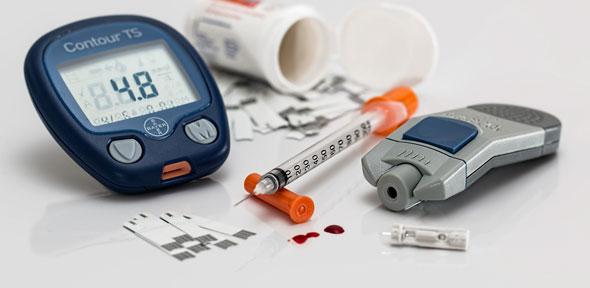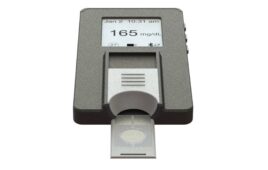
People with type 2 diabetes could improve their health by using a new web-based self-management tool, according to new research. (Credit: University of Cambridge)
The results, published in BMJ Open, and funded by the National Institute for Health Research (NIHR), come from the first UK-based trial of its kind and show that patients using the HeLP-Diabetes programme have better diabetes control after 12 months.
“Diabetes is an NHS priority, with around 4 million people in England living with type 2 diabetes. This self-management tool offers an evidence based and cost effective way to improve health outcomes, for patients both at the beginning and later on in their diagnosis, that could be offered as part of the current menu of self-management support,” said Professor Elizabeth Murray of University College London, the paper’s first author.
Clinicians at Whittington Health and researchers from University of Cambridge and UCL compared diabetes control and diabetes related stress in a randomised group of 374 patients from 21 general practices in England whose average age was just under 65 years. 185 patients used the HeLP-Diabetes programme developed at UCL, and a control group of 189 patients used information from a static, text-based website.
Anonymised clinical data were collected for a diabetes control molecule called glycated haemoglobin (HbA1c) and diabetes related stress data were collected via a patient self-report questionnaire where patients score themselves from 1 to 100 (higher scores indicating more stress) against 20 items focusing on areas that cause difficulty in everyday life.
Glycaemic control was chosen as an outcome measure as poorly controlled diabetes is associated with premature mortality and risk complications, such as cardiovascular disease. Participants made it a priority that disease related stress was also a primary outcome measure as around 40 percent of patients with diabetes have significant level of distress, severely impacting their quality of life.
The mean baseline for HbA1c was 7.3 percent but by the end of the trial participants in the HeLP-Diabetes group had a lower HbA1c than those in the control group (7.22 percent and 7.46 percent respectively). It is considered that this reduction of 0.24 percent across a population level could translate into considerable population benefit as each one percent reduction in HbA1c is associated with a risk reduction of 21 percent for deaths related to diabetes and a 37 percent risk reduction for microvascular complications.
While there was no significant overall difference between groups for diabetes related stress, it was highlighted that the baseline for diabetes related stress was exceptionally low in the trial population group. However, patients that had diabetes for less than seven years showed a beneficial impact – suggesting that early intervention could be key.
“This is an important step forward in helping people living with type 2 diabetes to take control of their health,” said Dr Michael Sweeting of Cambridge’s Department of Public Health and Primary Care, who was chief statistician in the trial. “Based on the results from this trial, we can be confident in the value of online programmes to help people manage chronic conditions effectively.”
“Although historically group-based sessions have been a popular choice for health care providers, online programmes offer individuals the flexibility to access support that fits around their lifestyle. All the content in our programme was evidence based drawing on a range of diabetes management research including behavioural change, accessibility and usability, and promoting emotional wellbeing by drawing on principles of cognitive behavioural therapy and mindfulness,” added Professor Murray.
“Giving people the skills to look after their diabetes is at the heart of what we do. As well as helping develop the website, our patients were involved at the very start. It was wonderful to see how people accessing the HeLP-Diabetes programme, to help track and monitor their condition, were able to keep their diabetes in check. We hope to see this initiative made widely available, so that many more people with diabetes can benefit from this exciting new development,” said Dr Maria Barnard, Lead Consultant in Diabetes, Whittington Health.




